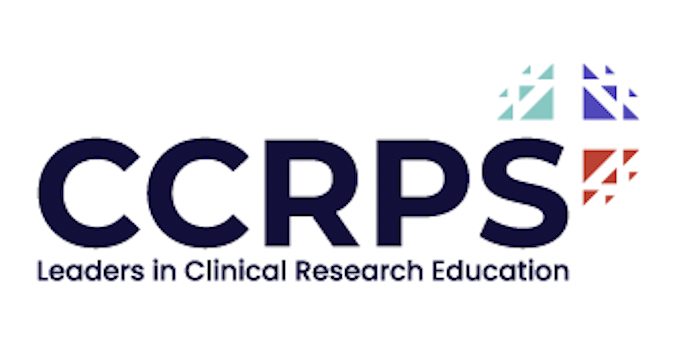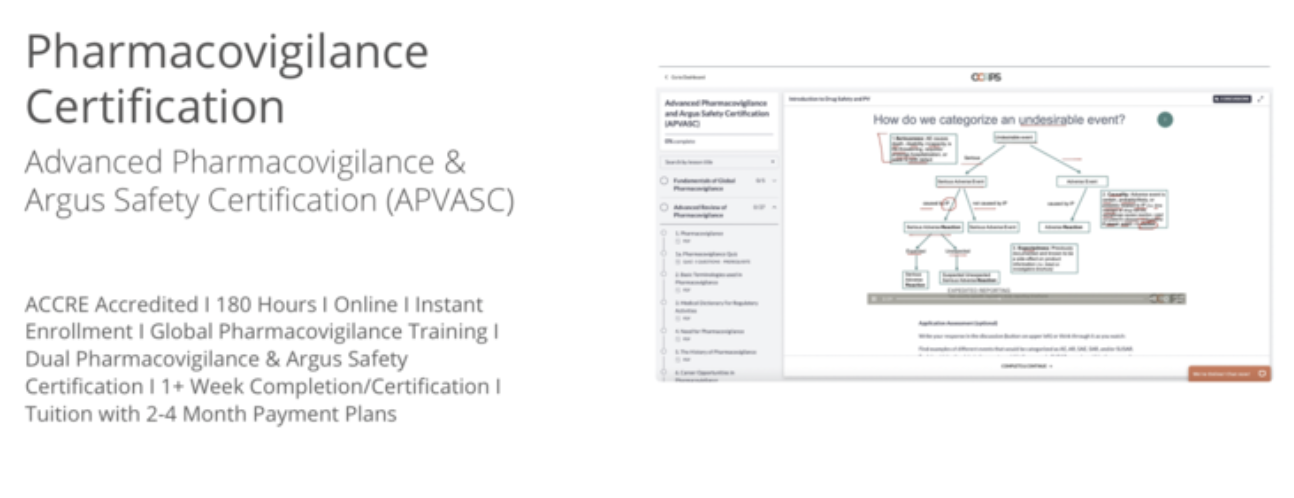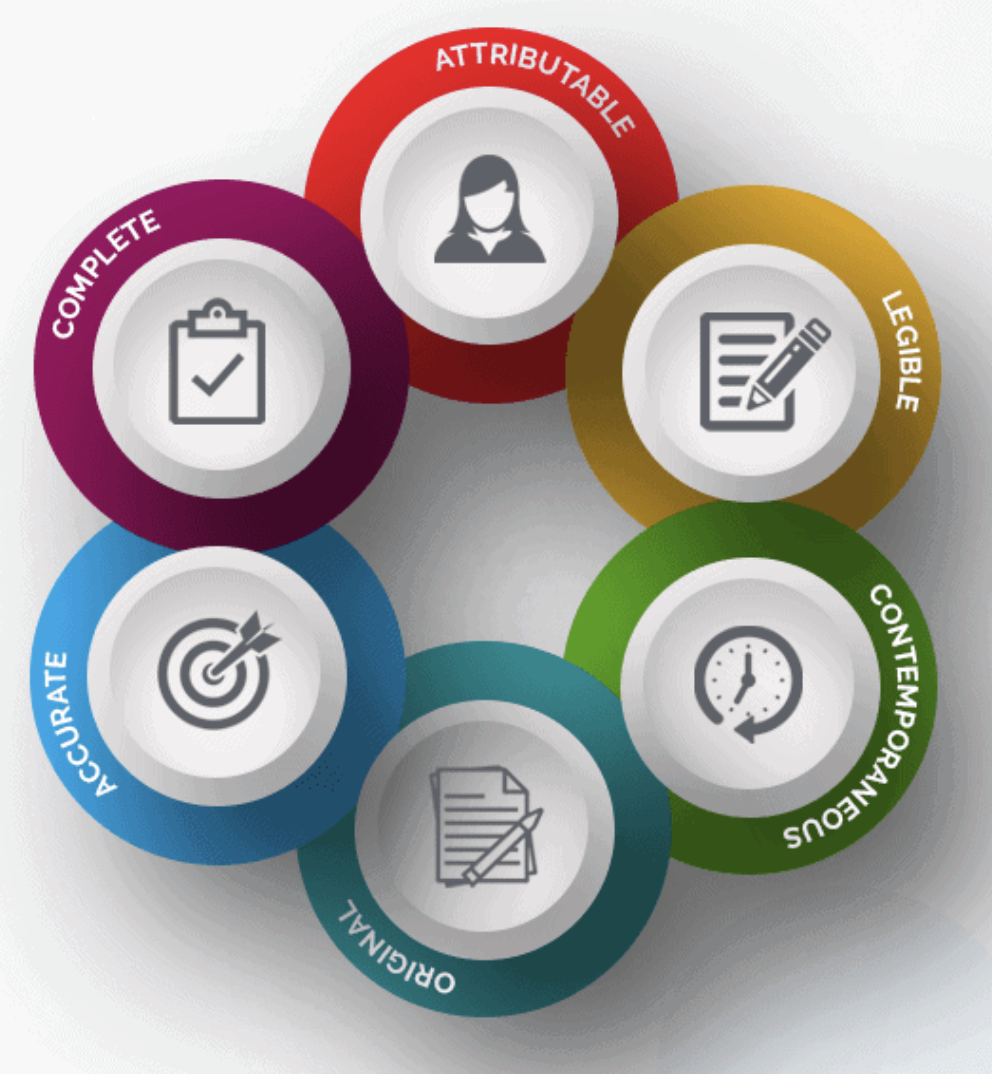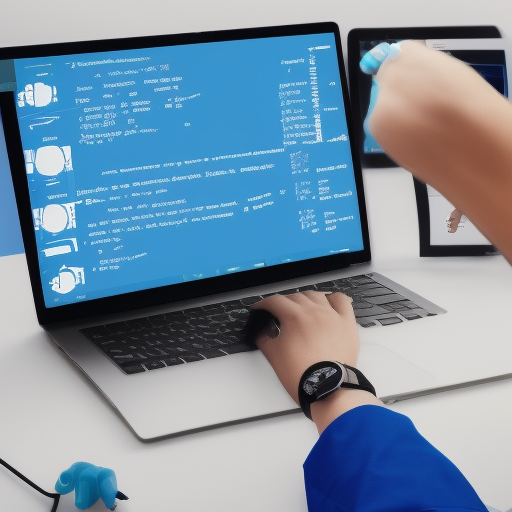How to Choose a Clinical Research Degree
Learn how to get a clinical research degree. Research the education requirements, training here. Visit now!
a clinical research degree makes you competent enough to function in the field of determining the safety, effectiveness, and efficacy of medical devices, new drugs, new treatments, and pharmaceutical products. There is no shortage of work for clinical research professionals as long as they have their degree at hand. The field is also a booming industry that is looking to raise the roof of medical advancement with competent certified clinical research professionals.
Government agencies like the FDA and many private companies are on the lookout for clinical researchers and managers that will monitor new treatment, medicines, and diagnostic products that are hitting the healthcare market every day.
Clinical research degrees include the following:
The expertise and involvement in the clinical field must be determined by the membership in the Consortium of academic programs in clinical research.
They must be the accessibility to students which be determined by the academic and professional experience required for admission.
Career training and curriculum relevance must be determined by the balance of technical and managerial coursework.
The application of knowledge type of experiential learning the requirements to graduate and significance to graduate must be instilled in the curriculum.
Students seeking a clinical research master's degree are sometimes already employed in the healthcare industry. The clinical research managers master's degree program offers plenty of flexibility in scheduling including online, offline, or hybrid course options.
For example, the University of Texas at Rio Grande Valley offers clinical research laboratory and hospital workers a convenient and affordable clinical research management master's degree program that is accelerated to be completed within 12 months. Its tuition is $1,008 per year. It is a top choice for working clinical research professionals who need to earn a paycheck while building their credentials. However, their accredited MS in clinical research is designed only for MDs.
On the other hand, the University of Texas Health Science Center at Houston is designed for clinicians and MD's at the faculty and fellow level. Its accredited MS in clinical research is a tough one that calls for a minimum of two years of courses delivered in weekly 90-minute lectures. Lectures are divided into the study design of clinical research, and emphatic genetics and molecular biology of translational research. Its tuition is $17,318 per year.
Degrees for clinical research sometimes has extreme strict admission requirements. So, it is important that each applicant consider each of their options carefully and choose the one that suits their needs and background best.
Take courses from CCRPS and learn more on how to become a clinical research professional.
Discover more from Clinical Research Training | Certified Clinical Research Professionals Course
What is a Clinical Research Scientist
A clinical research scientist performs medical research for the main purpose of improving health in animals or humans. They designed studies that involve
the investigation of particular diseases
the development of a medical device
the evaluation of a drug's safety or effectiveness
Scientists get the funding for their experiments by periodically writing for grants and proposals for submission to governmental agencies and private organizations. Clinical research scientist can work anywhere, be it a university, private organizations, hospitals, or research institutions.
To be a clinical research scientist and to start earning $95,420 as median salary yearly, you need a minimum degree level of a master’s degree and sometimes a Ph.D. in biological sciences, or medicine.A license is rarely required but many get the optional certification from the Association of Clinical Research Professionals. A work experience of two to five years, and the following key skills are what appeals the most to employers:
The ability to use analytical, scientific, graphics software, and user interface.
Extensive knowledge of computer processors, chips, hardware, and circuit boards.
Knowledge of other electronics and electrical equipment.
Knowledge on the usage of laboratory flasks, centrifuges, Petri plates or dishes and many more specifics.
The minimum degree required for a clinical research scientist is bachelor’s, but many get a MD or a Ph.D in Biology. They perform key responsibilities like the publication of research laboratory research and analysis for medical innovations. No license is required if the tests are going to be carried out on animals. However, but if you going to be conducting medical procedures in humans then all states require medical licensing. According to the United States Bureau of labor statistics, the average salary for a clinical medical scientist is $93,730. This ranks it as one of the highest paying clinical research professionals jobs in the clinical research industry.
If you want to stand out, you need go for a doctor of medicine degree or a doctorate’s degree in natural sciences. For you to gain a medical degree, you will have to undergo an admission process by submitting your scores from the medical college admission test (MCAT), letters of recommendation, and copies of all undergraduate transcripts.
The doctor of medicine MD degree spans for 4 years and during this. you will go through a wide range of courses which includes; anatomy, psychiatry, and pathology. Also you'll have to spend a lot of time in the laboratory setting and clinical settings.
A doctorate degree program must sit for departmental oral and written examinations. Many medical schools offer a joint MD and Ph.D. program that last 7 - 8 years. These programs offer a fast-tracked medical and scientific education that specifically cater to the clinical research field.
A clinical research scientist can work in public and private institutions. Job prospects show that there is going to be an 8% increase from 2014 to 2024. Scientists with both credentials have the best job prospects. Check here for some positions near you.
Take courses from CCRPS and learn more on how to become a clinical research scientist.
Discover more from Clinical Research Training | Certified Clinical Research Professionals Course
Everything You Need to Know About CROs
The clinical research industry has a lot of acronyms. It can be very confusing to navigate through the field’s vocabulary, especially if you are just starting to read about it. Below, I will tell you everything you need to know about CROs and make your life just a little bit easier.
What is a CRO?
CRO, or a clinical research organization, is a company that assist drug manufacturers and pharmaceutical companies by outsourcing the necessary stages and clinical trial processes. CROs streamline clinical trial processes and help in research and development (R&D).
What is the outlook for CROs?
The CROs are critical to the R&D process, and they create growing field. In 2017, the pharmaceutical outsourcing market was valued at $3.37 billion. By 2024, it is estimated to become valued at $7.26 billion.
Many large companies have their own clinical research organization or rely on an outside company to conduct drug development and testing. Outsourcing these services save pharmaceutical companies a lot of money. By hiring a CROs, companies no longer have to recruit or maintain their own clinical department. This helps a company cut down costs overtime.
The two major CROs are the LabCorp and IQVIA.
LabCorp, or Laboratory Corporation of America Holdings, generated $11.5 billion of revenue in 2019. LabCorp is split into two: Covance Drug Development and LabCorp Diagnostics. One focuses on clinical research from the early stage research to post regulatory approval, while the other focuses on the diagnostic tests.
IQVIA was the result of a merger between IMS Health and Quintiles in 2016. It had made $11.09 billion in revenue in 2019.
Why are CROs Growing?
Before a drug or medical device can be sold to the public, they must be approved by the relevant bodies. For example, in the U.S., a new drug must be FDA approved before it is released on the market. However, most evaluating bodies have high requirements and need a lot of quality, positive data approving a product. When companies expect unbiased and high-quality results, they hire a CRO.
CROs are experts at what they do. They provide skilled personnel to generate high-quality data and assist with the necessary paperwork so that an approval can go through. One of the most compelling reasons to hire a CRO is that they are unbiased. CROs work closely with the companies they work for, but are separate from them. They do not share a conflicts of interest and can be trusted to report accurate and truthful data.
Want to work for a CRO?
CROs are a part of a growing field, and they need a lot of manpower. There are so many postings for positions within a CROs right here. Don’t have any experience? Don’t worry! You can take courses from CCRPS and learn how to become a clinical research professional.
Take courses from CCRPS and learn more on how to become a clinical research professional.
Discover more from Clinical Research Training | Certified Clinical Research Professionals Course
Clinical Research Positions
Clinical research trials require a variety of people working together to execute a proper trial. There are several different career paths in clinical research, from technical positions to administrative positions.
Clinical Research Associate (CRA), Field Monitor, Clinical Monitor or Trial Monitor
The clinical research associate supervisors and monitors are requested and paid by sponsors who hire them to help with the administrative parts of clinical trials. Their duties include the filing of data, reviewing of case reports, performing investigational product accountability, and making sure that all necessary items are properly filed and documented. They also assist with pharmaceutical research, devices research, and biologics research. They ensure that good clinical practices are followed and that protocols are observed.
Clinical Research Data Manager
Clinical research data managers are in charge of the systems that produce data. Data managers review the protocol for trials before they start. They go through all the data involved in clinical trials strategically and analytically. They also review regulations, prepare protocols, and help the senior manager to ensure that the clinical trials are carried on smoothly. They are in charge of the monitoring, documentation, and information of all research studies.
Clinical Research Scientist
The clinical research scientist conducts clinical research trial roles that require years of working on clinical trials and clinical trial sites. They conduct a scientific test and ensure that there is proper monitoring of clinical research. They are also familiar with submission processes of clinical research studies, drawing up regulation affairs frameworks, assessment of study, and so on.
Biostatistician
The biostatistician operate when there is a compilation of clinical research data. The biostatistician sets up parameters for data collection clinical research products use to fulfill certain criteria. They also analyze all the clinical trial data and come up with a documented report that contains the results.
These clinical research positions above are regarded as some of the highest and high paying clinical research professionals positions in the world right now.
What are you waiting for? Register for courses get certified and start practicing.
Take courses from CCRPS and learn more on how to become a clinical research professional.
Discover more from Clinical Research Training | Certified Clinical Research Professionals Course
Why Should You Take Clinical Research Training
Clinical Research training is a prerequisite for all certification as clinical research professionals. Clinical research training is committed to providing support to facilitate the highest possible quality in clinical research. CCRPs provides training opportunities for faculty and research staff to ensure that research is carried out efficiently and appropriately. It also takes into account the safety of Clinical research.
The clinical research training program includes professional development for the whole clinical research faculty, this includes; clinical research nurses, clinical research coordinators, clinical research data managers, clinical research regulatory officers, clinical research administrative officers, and clinical research financial staff. The training is for anyone who is a clinical research professional or is involved in clinical research.
Clinical research training can be done online or in institutions, and it is done to maintain broad-based information on the local state federal and institutional requirements that are needed to initiate and manage clinical research. It includes detailed knowledge about the specifics of implementing research concrete system for educating and updating those involved in clinical, translational research and also observational research about the compliance and regulatory requirements and procedures of the clinical research. The training program is also designed to help educate research staff on how to resolve problems encountered in their work environment.
Courses are open to all faculty and clinical research staff including the support staff. They include the following;
Good clinical practice training also is known as GCP. GCP is very important as sponsors and are asking of it before initiating trials. GCP training twice a year and it's done face-to-face with experience, competent, and qualified GCP instructors
Introduction to a clinical trial. Although we at CCRPS do not offer clinical trials it is a prerequisite to understanding clinical research procedures.
CCRPs offers the lowest fees for online courses there are over 110 courses to choose from and all of them are for a little fee per year. With the online clinical research training from CCRPS, you can go on to establish a name for yourself in the clinical research industry. Clinical research managers and clinical research Associates are the hotcakes in the clinical research industry presently. They are by far the most wanted clinical research professionals earning on an average nothing less than $55000 at least and over $120,000 per annum.
Make the smart choice today, switch to CCRPS take the online courses and upgrade your career.
Take courses from CCRPS and learn more on how to become a clinical research professional.
Discover more from Clinical Research Training | Certified Clinical Research Professionals Course
Clinical Research Trends For 2024
Looking at 2018, there are several shifts in clinical trial outsourcing trends that sponsors and vendors should be aware of. Many of these trends are driven by regulations and industry guidelines, as well as a growing need for new therapies.
In 2017, there was a slight increase in clinical outsourcing penetration as it grew from 43 percent to 45 percent (Clinical Leader). While the majority of outsourcing still lies with large, full service CROs, the percentage of work going to specialist CROs is growing due to a need for experts in therapeutic areas and indications, regulatory requirements and pharmacovigilance.
Below is a look at trends in outsourcing that shaped 2024:
TECHNOLOGY INVOLVEMENT
Sure, technology has been an ongoing trend in clinical trials for years. Technologies such as Electronic Data Capture (EDC), Patient Recorded Outcomes (PRO) and Clinical Trial Management Systems (CTMS) have become part of the norm. However technology is now playing a bigger role in the overall clinical study strategy. Tech giants such as Google, Amazon, and Apple are also looking for a chunk of the clinical trial sector by developing technologies that are patient-centric. Market leaders such as Medidata, Oracle and Veeva are continuing to develop extensive technology platforms for clinical trials.
DATA ANALYTICS ARE FUNDAMENTAL
Centralized statistical monitoring is being mentioned more frequently as sponsors look to facilitate risk-based monitoring with real-time, accurate metrics. Data analytics will play an even greater role in crucial strategic decisions for Sponsors.
PHARMACOVIGILANCE OUTSOURCING (PVO) ON THE RISE
Pharmacovigilance outsourcing got its own acronym and some additional attention in 2018. The management and reporting of adverse events is becoming a complex business and new regulations are making it more difficult for sponsors to keep up without support from specialized experts.
BIOTECH GOING AT IT ALONE?
Biotechs have often looked to large pharma partnerships to carry their compounds into late phase trials and on to approval. Biotechs now have multiple outsourcing models available including Functional Service Provision to allow them to continue developing their product.
RISE OF STRATEGIC PARTNERSHIP MODEL AND FSP
Over 60 percent of Sponsors have started outsourcing in-house activities to “strategic partners”. For clinical, data, regulatory and clinical IT solutions, Sponsors are increasingly looking to the Functional Service Provision model.
Whether you’re considering a career in clinical research management or looking for a job in that field, here’s a round-up of the info you need to know
The average pay for a Clinical Research Manager is $32.27 per hour. The average pay for a Clinical Research Manager is $77,532 per year. Is Clinical Research Manager your job title? Get a personalized salary report!
Where is a Clinical Research Manager likely to work?
A Clinical Research Manager can work for a number of different and exciting organizations, including a:
Pharmaceutical company
Government-based organization – the Medicines and Healthcare products Regulatory Agency (MHRA)
A non-governmental organisation (NGO) – World Health Organization (WHO)
Health charity
Take a look at latest vacancies in clinical research today!
Take courses from CCRPS and learn more on how to become a clinical research professional.
Discover more from Clinical Research Training | Certified Clinical Research Professionals Course
What to Know About Working at Eurofins Clinical Research Laboratories (CRL)
A medical laboratory or clinical laboratory is a laboratory where clinical pathology tests are carried out on clinical specimens to obtain information about the health of a patient to aid in the diagnosis, treatment, and prevention of disease. Medical laboratories vary in size and complexity. They also offer different testing services.
Eurofins Clinical Research Laboratories (CRL) was established in 1992. Today, CRL operates as a contract laboratory providing a wide range of clinical safety and efficacy testing. Located in central New Jersey, CRL is dedicated to conducting human clinical test procedures to determine the safety and efficacy of cosmetic, personal care, and OTC drug products.
One of CRL’s specialties is providing human repeated insult patch testing (HRIPT) as both shared and exclusive panels. Various safety-in-use (SIU) studies are provided to meet the needs of any specific product category. There are different safety tests that CRL provides which can be modified to meet new and emerging technologies.
The staff of clinical laboratories may include:
Pathologist.
Clinical Biochemist.
Pathologists' Assistant (PA).
Biomedical Scientist (BMS) in the UK, Medical Laboratory Scientist (MT, MLS or CLS) in the US or Medical Laboratory Technologist in Canada.
Medical Laboratory Technician/Clinical Laboratory Technician (MLT or CLT in the US).
Medical Laboratory Assistant (MLA).
Phlebotomist (PBT).
Histotechnologist/Histology Technician.
What is a Clinical Laboratory Scientist?
The average pay for a Clinical Laboratory Scientist is $30.99 per hour.
Clinical laboratory scientists generally work for hospitals and independent medical laboratories. Candidates for this position are generally required to have a bachelor’s degree in biology, chemistry, laboratory science, or a related field, as well as necessary certifications as required by employers.
Eurofin CRL is a huge employer of clinical laboratory staff. If you are on the look out for a career in clinical research, check out their website here.
Take courses from CCRPS and learn more on how to become a clinical research professional.
Discover more from Clinical Research Training | Certified Clinical Research Professionals Course
What is a Clinical Research Psychologist
Learn about what a clinical research psychology does, skills, salary, and how you can become one in the future.
Clinical psychology research is a specialization within clinical research. It is the study of behavioral and mental health. In many ways, it is as important to the nation's health and well being as medical research.
In the same way that medical scientists work to understand the prevention, genesis, and spread of various diseases, clinical research psychologists conduct rigorous psychological research studies to understand, prevent, and treat the psychological conditions as it applies to individuals, couples, families, cultures, and diverse communities.
Empirical results gathered from psychological research studies guide practitioners in developing effective interventions and techniques that clinical psychologists employ - proven, reliable results that improve lives, mend troubled relationships, manage addictions, and help manage and treat a variety of other mental health issues. Clinical psychology integrates science with practice and produces a field that encourages a robust, ongoing process of scientific discovery and clinical application.
Role
Clinical research psychologists integrate the science of psychology and the treatment of complex human problems with the intention of promoting change. The four main goals of psychology are to describe, explain, predict and control the behavior and mental processes of others. This approach allows clinical researchers to accomplish their goals for their psychological studies, which is to describe, explain, predict, and in some cases, influence processes or behaviors of the mind. The ultimate goal of scientific research in psychology is to illustrate behaviors and give details on why they take place.
Clinical psychologists work largely in health and social care settings including hospitals, health centers, community mental health teams, Child and Adolescent Mental Health Services (CAMHS) and social services. They often work as part of a team with other health professionals and practitioners.
Salary and Education
The mean annual salary of a clinical psychologist is about $69,000, however, those with doctoral degrees can earn salaries of $116,343 or more. This industry is highly stable and growing, as psychological research becomes more important to various other industries.
If you want to become a clinical research psychologist, you need a master’s or doctorate degree. In these graduate programs, you will be trained at how to navigate this large body of research. In addition, many clinical psychology students are able to make significant contributions to the field during their education by assisting in labs and learning valuable field knowledge.
Research in clinical psychology is vast, containing hundreds if not thousands of topics. By engaging in research, we are investigating new ways to understand the human mind, and developing solutions to enrich the lives of all others, many students create current and up-to-date with psychology research at universities and research labs across the world.
Take courses from CCRPS and learn more on how to become a clinical research professional.
Discover more from Clinical Research Training | Certified Clinical Research Professionals Course
What is a Clinical Research Director
A clinical research director works to provide leadership in clinical research settings. They help oversee the overall evaluation and development of drugs or healthcare solutions, programs designed to prevent or treat infectious disease, and more. In short, they are responsible for the management of the research side of a healthcare organization.
The director of research is a management position within the development services function. Research directors supervise the research staff. They set departmental and individual employee goals and provide routine evaluations of progress toward these goals.
Job duties
Develop operating procedures and ensure that the entire clinical research team follows those procedures
Create good overall guidelines for clinical research and ensure that the guidelines are followed
Assist in procuring specimens and samples for research needs
Help balance budgets and oversee the management of the clinical research team
Ensure that all federal and state regulations are followed completely
Handle HR roles including overseeing the hiring process and the employee management process
Present progress reports and strategies for upper-level management
Serve as a director over the work of those employees who work under you
In essence, the job is a management level position that focuses on directing, organization, and administrating a clinical research facility. It is a role that requires a number of skills and capabilities, but one that offers numerous rewards to those who can excel in the position.
Characteristics
There are abilities that will only be mastered through education, but strengths in the following personal areas will have a big impact on your ability to excel in the job:
Strong Communication Skills – As a director, you’ll end up having to discuss options with your employees as well as your superiors. You will also be meeting with policymakers. Good communication is vital in these scenarios.
Confidence – You’ll also need to have confidence in your own abilities in order to complete your duties without hesitation or worry.
Strong Leadership Skills – In general, you’ll need good leadership skills in order to thrive in the role.
Nature of the Work
The work will take you from the lab to the office to the board room. As a clinical research director, you’ll divide your time between overseeing the activities going on in a facility, as wells as managing information and reports in your office. In some instances, you may have to visit conferences and other public functions in order to further hone your skills or to make the connections needed to move your research facility into the future.
Average salaries in the field vary around $132,000. While the low end of the salary range is roughly $87,000, it is still well above the national salary average for other jobs. In short, the position is one that can offer incredible pay and plenty of other benefits as well.
Take courses from CCRPS and learn more on how to become a clinical research director.
Discover more from Clinical Research Training | Certified Clinical Research Professionals Course
A Student's Guide to Clinical Certificate programs
This one-year certificate program, will let you learn research design concepts, analysis, and the quality assurance required for daily operations in the clinical research field. You will examine clinical studies across the pharmaceutical, medical device and natural health product sectors that give the competitive edge required in this dynamic industry. In this hands-on program, you will work alongside industry professionals and develop a network of contacts ahead of graduation.
The Clinical Research Certificate provides training in research methods for faculty members, postgraduate residents, international fellows and community-based health care professionals who want to improve their knowledge and skills in research methodology and quality improvement.
Completion of the certificate will significantly enhance your ability to understand, effectively use, engage in and collaborate in research. It is not intended as a substitute for a research-based graduate degree, nor is it intended to lead to independent research projects (i.e., to take on a Principal Investigator role on large projects).
Work Experience
Optional Work Term
Students meeting all academic requirements may have the opportunity to complete an optional work term(s) in a formal work environment. The work term(s) is similar in length to an academic semester and typically involves full-time work hours that may be paid or unpaid. In programs with limited work term opportunities, additional academic requirements and a passing grade on a communication assessment may be required for eligibility. Eligibility for participation does not guarantee that a work position will be secured. Additional fees are required for those participating in the optional work term stream regardless of success in securing a work position.
Your Career
As a graduate of this program, you may pursue future career options, such as:
Skills
Throughout this program you will develop the following skills:
Conduct research design concepts.
Analysis and quality assurance of daily operations in clinical trials development process for products such as drugs, medical devices, biopharmaceuticals and natural health products.
Identify the roles and responsibilities of the different positions within the clinical research processes.
Learn to incorporate ethical practices.
Program Objectives
After completing this certificate program, students will be better able to:
Construct meaningful research questions applicable to primary care research.
Compare and describe qualitative and quantitative research methodologies.
Design and contrast quantitative and qualitative data collection and analysis procedures
Appraise and critique data reported in the literature from research studies.
Identify, discuss and complete a grant proposal for submission to a research ethics board.
Clinicians seeking greater expertise and confidence in the use of research in their practice.
Applicants must be health care professionals licensed and in active practice in their country of primary residence and a Certificate of Completion will be issued by the Office of Continuing Professional Development to participants who satisfactorily complete the program.
Learners are evaluated on each component on a pass / fail basis, therefore there is no terminal examination or thesis and all components must be passed.
Take courses from CCRPS and learn more on how to become a clinical research professional.
Discover more from Clinical Research Training | Certified Clinical Research Professionals Course
How to Find an International Clinical Research Job
Have you ever wanted to live in another country? International clinical research organizations (CROs) are always on the lookout for prospective clinical research professionals to fill the extensive range of positions that abound across the world in different company locations, sizes, and capacities.
The international scene posts new clinical research vacancies and job opportunities daily, and these clinical research vacancies and job opportunities ranges from management roles such as Study Manager (SM), Clinical Project Managers (CPMs), Clinical Trials Managers (CTMs), Clinical Research Coordinators (CRCs) Clinical Trial Assistants (CTAs), Clinical Research Associates (CRAs), and Clinical Directors (CDs) and Physical Investigators (PI) at global, regional, or local levels.
Let's take a look at some of the most popular international clinical research professional jobs on offer right now (as of May, 2019).
Clinical Project Manager: RBW Consulting Services located in the United Kingdom. Salary £55,000 - £65,000.
Clinical Project Manager: Cobham company in the United Kingdom. Salary £60,000 - £79,999.
Clinical Project Manager: Piper Company in the United States. Salary $125,000 - $140,000.
Clinical Trial Manager: PRA Health Services in the United States. Salary $117,000 - $171,000.
Clinical Director: United States Department of Health and Human Services. Salary $137,849 - $262,000.
The opportunities are diverse. You find find work ranging from medical technology, to pharmaceutical companies, to contract research organizations. A competent clinical research professional can find opportunities to work on various clinical trial projects in multiple companies.
No one will pay for half-baked professionals. Therefore, you have to develop yourself by taking courses from CCRPS and learn more on how to become a successful clinical research professional.
Take courses from CCRPS and learn more on how to become a clinical research professional.
Discover more from Clinical Research Training | Certified Clinical Research Professionals Course
Clinical Research Courses for CTA and CRA
Clinical research courses are necessary to ensure that there are enough competent, responsible, and efficient clinical research professionals in the clinical research field. In this article, we'll be paying attention to the clinical research courses for Clinical Trial Assistants (CTAs), and Junior or Senior Clinical Research Associates (CRAs).
CTA
CTAs are one of the crucial role players in the clinical research process. They maintain the project's records, files, documentation and store them. They also assist with the review of clinical project records for accuracy and make them complete and ready for audit.
The CTA course offered at CCRPS are for those who are new to the job and want to cover the basics and principles of clinical research.
The program will highlight ICH GCP as the clinical research basis to introduce the new CTAs to drug development and to be familiar with the rules. It covers clinical studies operations, data management, and informatics, investigational product development and regulation, etc.
CRA
Junior Clinical Research Associates (CRAs) are introduced to Clinical Research, the life cycle of a clinical trial, how to monitor the clinical trial activities at different stages, clinical data monitoring, and management. It helps student become more familiar with the job of a CRA from the start of a clinical trial to its end. The course offered are similar to as those of a CTA’s.
Senior Clinical Research Associates (CRAs) are given opportunities to face more complex clinical trials and site management issues. The program will highlight the importance of international research as well as the role of the ICH GCP process. It also gives updates on the overview of current legislative requirements including:
guidance on substantial trial modifications,
improving the recruitment process of subjects and site staff
how to prioritize and upgrade clinical trial monitoring tasks and activities
accurate monitoring and reporting, dealings with non-compliance
efficient tracking and coaching and mentoring junior CRAs
The courses offered will expand the knowledge and improve the monitoring skills to help take and make the right actions and decisions to resolve site issues.
Each of the courses is designed to produce competent clinical research professionals.
Take courses from CCRPS and learn more on how to become Clinical Trial Assistants, and Junior and Senior Clinical Research Associates.
Take courses from CCRPS and learn more on how to become a clinical research professional.
Discover more from Clinical Research Training | Certified Clinical Research Professionals Course
What To Know About Clinical Trial Protocols
Clinical Trial Protocol
Download our advanced review of the: Clinical Trial Protocol PDF
What is a Clinical Trial Protocol
Clinical trial protocols are the plans that are followed by all clinical trial professionals. They are designed to balance the benefits and risks of all clinical trials. The clinical trials are often sponsored by clinical trial sponsors who are responsible for the managing, initiating, and/or financing of clinical trials, but they do not conduct or supervise the clinical researches. Clinical trial sponsors include people, companies, government agencies, organizations, or other institutions.
What is the purpose of a Clinical Trial Protocol
The protocols are guidelines to answer specific research questions. They include the following; the goal of the study, the details on tests, treatments, and procedures, the eligibility of participants that will take part in the clinical trials, the length of the trial, the information needed and gathered, and protections against the risks to participants.
A clinical trial is always led by a Principal Investigator (PI), who direct members of the clinical research team regularly monitor the health of the participants to help determine and evaluate the safety and effectiveness of the study.
There are different types of clinical trials to you can work in, from which you can earn $60,412 - $160,876 a year.
Screening Trials: This trial tests new ways of detecting diseases or health conditions.
Prevention of Trials: This trial looks for the best way to prevent diseases from happening or reoccurring.
Diagnostic Trials: This trial studies and compares tests or procedures in the diagnosis of a particular disease or condition.
Behavioral Trials: This trial evaluates and compares ways to promote behavioral changes to improve health
Supportive Care Trials: This trial explores the new ways to improve comfort and quality of life for people with illnesses and conditions.
Treatment of Trials: This trial tests new treatments, a new combination of drugs, new drugs, new surgical procedures, new radiation therapy, and new medical approaches.
There are four phases of clinical trials which serve different purposes and help answer different questions.
Trials Phase 1. This is the testing of drugs or treatments within a small group of people ranging from 20 - 80 to study the drugs or treatments to learn and identify the side effects and safety of the drugs.
Trials Phase 2. This is the testing of drugs or treatments within a large group of people ranging from 100 - 300 to determine the effectiveness of the drugs or treatments and to further study its safety.
Trials Phase 3. This is the testing of new drugs or treatments within a large group of people ranging from 1,000 - 3,000 to monitor its side effects, its effectiveness, it's standards, and also to collect information on how the new drugs or treatments can be used safely.
Trials Phase 4. This is the phase where the new drugs or treatments get approved by the FDA and is made available to the public, to track its safety and to also seek more information about the benefits of the drugs and the treatments.
Take courses from CCRPS and learn more on how to become a clinical trial professional
Discover more from Clinical Research Training | Certified Clinical Research Professionals Course
Job Prospects in Clinical Trial
Clinical trials are research studies in which is include volunteers, doctors, and clinical researchers working together to learn more about diseases and how to improve health care for people.
A clinical trial is a branch of clinical research, which is a major component of medical research and it involves everyone including you. It consists of volunteers, doctors, and clinical researchers working together to learn more about diseases and how to improve health care for people.
Clinical trial includes the following branches:
Behavioral: This branch improves the understanding of human behavior and how it relates to diseases and health.
Health Services: This branch focuses on the way people access health care services and service providers, how much health care costs, and the results of the care to the patients.
Epidemiology: This branch focuses on improving the understanding of a disease by studying, the cause, patterns, symptoms, effects, prevention, and cures in specific groups.
Clinical Trials: This branch helps evaluate the effects of an intervention on health outcomes.
You must be wondering why you should be a part of the professionals that engage in clinical trials, right? Let's give you some insider scoop. Clinical trials are at the heart of all medical advancement around the world, and it provides one of the highest pay in all the medical field. Salaries range from $65,854 - $160,654. Clinical trials is important. It looks at new ways to detect, prevent, and treat diseases. Professionals study new medical devices, new drugs, new combinations of drugs, new surgical procedures, new ways to use existing treatments, new ways of behavioral changes to improve health, all to find new ways to improve the quality of life.
The main goal of all clinical trials is to determine if the detection, treatment, prevention, experimentation, and behavioral approaches to health care are effective and safe. Clinical trials offer hope for people with illness, diseases, or healthy volunteers receive new treatments and care as well as take part in finding new ways to help others.
Take courses from CCRPS and learn more on how to become a clinical research professional.
Discover more from Clinical Research Training | Certified Clinical Research Professionals Course
Full List of CCRPS Clinical Research Courses
Clinical research courses are a prerequisite to any certification in the clinical research field. Clinical research is the investigation that is focused on determining the safety and efficiency of new medical products that includes; devices, diagnostic agents, vaccines, drugs, and treatment procedures that are intended to maintain, regain, and experiment new possibilities for human health.
Clinical research looks into the prevention, treatment, diagnosis, and relieving symptoms of diseases. They carry out medical investigations on healthy and diseased human volunteers to generate information that can be used to treat, diagnose, prevent, and curtail diseases and their symptoms. Clinical professionals develop, research, and test new applications in medical and clinical science, as well as develop new applications which include, medical procedures, vaccines, and pharmaceuticals to be tested in clinical trials.
So, what are the minimum requirements needed to study clinical research courses?
Doctorate degrees (M.B.B.S, B.S.S.M, B.A.M.S, B.V.Sc., B.H.M.S, B.D.S, B.U.M.S.)
Bachelor’s degree in Pharmacy or Physiotherapy (B.Pharm., M.Pharm.)
Life Sciences (Biochemistry, Toxicology, Biotechnology, Microbiology, Botany, Zoology, or Pharmacology)
Nursing
Taking these courses will open a lot of job opportunities in the clinical research field, as you can occupy any of the following posts;
Clinical Research Associate (CRAs)
Clinical Research Analysts (CRAn)
Biostatistician, etc.
Since clinical research deals with the diverse experiments conducted with living organisms or humans, the major parts of the course will focus on the following;
The organic activities performed in the clinical trial sites.
The study of drugs and medicine management.
The manufacture of medicine and drugs
The study of related disciplines such as biochemistry, epidemiology, biostatistics, transplantation, etc.
The advanced study of the sub-specialties of data management, epidemiology, biostatistics, and research design.
The determination of the appropriate quantity and quality of drugs to be ingested or taken into the body, and the impact of it to the body, as well as the reaction of the body to the drugs.
All candidates that are enrolled into the course are expected to choose an area of specialization from the following:
Genetics
Epidemiology
Patient-specific research
Translational research
Since clinical research deals mainly with the research of medical equipment and medicines based on their safety and performance, it is one of the most important industries pertaining to the healthcare domain. Additionally, it is also one of the highest paying industries, with the average annual salary ranging from $56,984 - $156,678.
Take courses from CCRPS and learn more on how to become a clinical research professional.
Discover more from Clinical Research Training | Certified Clinical Research Professionals Course
What is a Clinical Research Analyst
In the wide field of clinical research professionals, there are lots of job opportunities as well as job posts. They include; clinical research coordinators, clinical research project managers, clinical research trial managers, principal investigators, clinical research analysts, and many more. In this article, we will talk about the clinical research analyst position.
What does a clinical research analyst job entail?
Clinical research is often conducted and carried out in clinics, hospitals, clinical research trial sites, medical facilities, or laboratories (private and individual companies or pharmaceuticals). In effect, clinical research analyst work hand in hand with clinical research professionals within the medical field. They work on medical studies designed to measure the effectiveness of a medical device, drug, or medical process on the human body.
A clinical research analyst directly works under clinical research management. They work within teams that conduct medical studies, clinical research, and clinical trials.
Clinical research analyst are one of the many key players in clinical trials and medical studies. They combine clinical sciences, scientific research, medical education, analytical and communications skills, and sometimes financial skills and knowledge to their job. Their role is very flexible. They can be in labs, directly working with patients, or they can be providing scientific or financial insight to physicians and principal investigators.
The general job description of a clinical research analyst includes the following;
Working with scientists or physicians who oversee the clinical research process and procedures.
Direct interaction with patients by interviewing and screening them as potential candidates.
Collecting data from the clinical trial sites for further and accurate study.
Carry out research accounting and budgeting, this is where their financial acumen comes into play.
Acting as liaisons between supervising physician investigators and other medical staff such as nurses.
Coordinating clinical research studies by tracking inventory, collation, and collection of data, identifying and interacting with patients, and overseeing protocols.
Acting as the primary financial resource to go to for clinical study.
To be a clinical research analyst you need to have a minimum of an associate’s degree for an entry-level qualification. You will need a bachelor’s or master’s degree for higher level positions. For a clinical research analyst, work experience in a clinical research setting or other clinical related field is a requirement.
The prospective job growth is promising, as it is projected at an estimated 16% growth till 2024, with an estimated annual salary of $60,520 and above.
Take courses from CCRPS and learn more on how to become a clinical research professional.
Discover more from Clinical Research Training | Certified Clinical Research Professionals Course
How to Become a Clinical Trial Manager
Clinical trial managers are one of the most important roles when it comes to the development of new medicines. They ensure the safety of the human subjects that are involved in a clinical trial. Apart from that, they also weigh and validate the outcomes of the trial against industry standards. Do you like the idea of being a clinical trial manager? Then here’s how to become a clinical trial manager.
The steps are quite simple. In preparing to become a clinical trial manager, you should obtain a bachelor's or master's degree in clinical sciences, life sciences, or other health sciences related fields. Get a post-baccalaureate certificate from CCRPS, and get administered by the Academy of Clinical Research Professionals.
A good clinical trial manager course should include enrollment into at least 6 required courses (site management, good clinical practices, drug development procedures, clinical research writing, and statistical analysis) and 1 elective to earn your clinical trial manager certification. You are also required to take some computer science courses to have knowledge of Clinical Trial Management System and Oracle Clinic, programs you will need to know for the job.
This job entails receiving accurate information, decision making, and problem-solving organizing skills. This means that you must be familiar with planning, work updates, establishing interpersonal relationship skills, and maintaining interpersonal relationships.
As a clinical trial manager you tend to be a working manager for smaller staff (this makes you a part of the research process). However, you could be a working manager with larger staff (this makes you stay in a supervisory role). Whatever the case might be, CTMs coordinate the activities of their unit with other units and makes sure that the financial, production, and marketing specialist are fully equipped with supplies, equipment, and materials. They are in charge of directing the activities related to the research, development, and coordination of clinical trials.
As a CTM you will:
hire, supervise, and evaluate technicians, staff members, and scientists
ensure that the laboratories are fully stocked and equipped with supplies and equipment
provide technical support to scientists and technicians
monitor the progress of projects
draft out operational reports
review all performed research and
report all researched results accurately
establish and make sure that administrative procedures, standard, and policies, are duly complied to and followed
direct and coordinate the development of project products, production activities, and scientific research activities (improving the process of manufacturing)
The average salary earned is between the range of $100,289 - $150,874, though that may vary based on location. Job boards are a great way to check on positions available near you.
Get a course at CCRP and get certified to become a Certified Clinical Trial Manager.
Discover more from Clinical Research Training | Certified Clinical Research Professionals Course.
International Educational Services
The curriculum and syllabus are important parts of any education and training programs for clinical research professionals. Thus, they help determine the structure and quality of international educational services around the world.
One of the foremost international educational services institutions is Barnett International. Barnett International was founded in 1979 and is widely known for its educational courses, training consulting services, and training programs for clinical research professionals all around the world.
Clinical research training platforms vary depending on the learning requirements. Barnett International offer training, interactive web training sessions, and e-learning modules for specific clinical research roles. They provide students with a training experience that is uniquely focused on core competency development. Their clinical training curriculum covers Clinical Research Coordinators (CRCs), Clinical Research Associates (CRAs), Principal Investigator (PIs), Clinical Data Managers, Regulatory Affairs, Clinical Quality Assurance, Clinical Project Managers, and other clinical research roles. Most importantly, heir courses provide the flexibility and engagement for every kind of student.
We can take a look at another international educational service institution, which is the Institute of Clinical Research (ICR). ICR is perhaps the oldest international educational service provider for clinical researchers. They are known for providing high-quality training, support, and networking to the clinical research community.
How do they achieve all this? The ICR strives to support their members throughout all the stages of their careers by defining and refining standards for the clinical research industry. They do so by providing an interactive forum where the discussion of key issues that affect and impact clinical research takes place.
They also provide opportunities for learning and development to enhance the competence of clinical research professionals. Clinical professionals that know what they are doing boost the public confidence, outlook, and understanding of clinical research as well as promote a good relationship with other healthcare related professionals.
CCRP is another international educational services provider that is known for their clinical research online training for every student, such as CRA, CRC, PI, ICH GCP Protocol, CRM, RA, CQM, and others. CCRP courses are accredited by the ACCRE and curated by real life professionals that know what information is most important for a student to learn. The training course are self-paced and online. That means you can take the course on your own schedule and learn how you learn best.
The goal of these international educational service providers is to ensure and support excellence in clinical research. By implementing competent members with the training, certification, and development tools, their student can work ethically, responsibly, and professionally anywhere in the world.
Become a part of clinical research professionals and see yourself earning $81,654 annually on average. Researching jobs positions near you can give you a better idea of what is available in your location. Want to get started? Check out our website and let us help you succeed.
Take courses from CCRPS and learn more on how to become a clinical research professional.
Discover more from Clinical Research Training | Certified Clinical Research Professionals Course
Why Are Clinical Research Seminars Important
The purpose of the clinical research seminars is to impact the attendees with knowledge about important aspects of clinical research, such as the professional ethics, operational aspect and regulations. Education and training are very important in this field and vital to the success of trials. Seminars are another way of training clinical research professionals or other related professionals that have an interest in the field.
Seminars can be held every two weeks, monthly or quarterly. It depends totally on the organizers and what they aim to achieve with the seminar. For example, some organizers may hold a biweekly seminar for young interns to help them improve their knowledge and sharpen their clinical research skills.
Clinical research seminars are ideal for the following sets of people:
Project managers
Nurses
Regulatory experts
Other staff also involved in clinical research can as well attend the seminar to improve their knowledge. Common topics that are discussed at the seminars include :
Good clinical practice (GCP)
Professional ethics of clinical researchers.
Auditing clinical trials
Advanced quality monitoring
Monitoring oncology trials
Current regulations
Inspection preparation
Resources involved with clinical research.
Guidelines pertaining to clinical research.
These seminars are usually handled by experts and professionals in the clinical research industry. They are usually have worked with different leading pharmaceutical companies biotechnological companies, device companies, and leading academic institutions.
Clinical research seminars can also provide extra benefits. This depends a lot on who the organizers are, but some clinical research seminars provide those in attendance with SOCRA (Society of Clinical Research Associates), ACRP (Association of Clinical Research Professionals) and CME Continuing Education Credit hours.
Apart from seminars organized by different institutions that an individual can apply for, seminars can also be organized for in-house training. They can be tailored to meet your company's specific needs. Organizers can provide your company with a set of training options that range from single topic seminar presentation to more comprehensive programs. For instance, some organizers make use of different hands on approach by providing activities and simulated case studies to help the audience's learning process.
As an individual you can register yourself to become a participant of upcoming clinical research seminars at ccrps.org. As an organization or company as well, you can register your staffs for these seminars. As a company, you can register for in-house training, where the seminars can be tailored for your specific needs.
Take courses from CCRPS and learn more on how to become a clinical research professional.
Discover more from Clinical Research Training | Certified Clinical Research Professionals Course
Free Online Clinical Research Courses
Clinical research plays a very vital role in medical health care. Before anything is put into practice, it will have to be discovered first and tested: this is the role of clinical research.
Free online courses on clinical research teach the basics of clinical research. They help students understand more about modern health care and the role of clinical research and its discovery. Courses like these are ideal for college students and people who are considering taking up a career in health care and life sciences. It is also good for social care practitioners that want to find out more information about the role of clinical research in improving the quality of healthcare.
Clinical research training for research professionals include taking necessary courses and getting the necessary accompanying certification. However, clinical research professionals can also take part in courses teaching the rudiments of clinical research and good clinical practice. An example of one of such courses is the one offered by National Institutes of Health (NIH). The course "Introduction to the principles and practice of clinical research" is a course that teaches professionals how to improve their effectiveness and to as well safety. This course covers topics like study design, monitoring and regulatory considerations, how to prepare and implement clinical studies, statistics, ethical and legal considerations in clinical research, measurements, additional study design etc. A course like this helps you to understand the very basics of clinical research and improves your efficiency.
As good as free online clinical research courses are to help you develop your career as a clinical research professional, they are not meant to take the place of the required training needed, especially those that train you in the protection of the human subjects of clinical research.
For further details and information on how to get free online courses for clinical research professionals, visit ccrps.org. Whether you are a research professional looking to learn more and better your career or you are a student or someone just taking up an interest in the field of clinical research, there will be something for you.
Take courses from CCRPS and learn more on how to become a clinical research professional.
Discover more from Clinical Research Training | Certified Clinical Research Professionals Course


















































